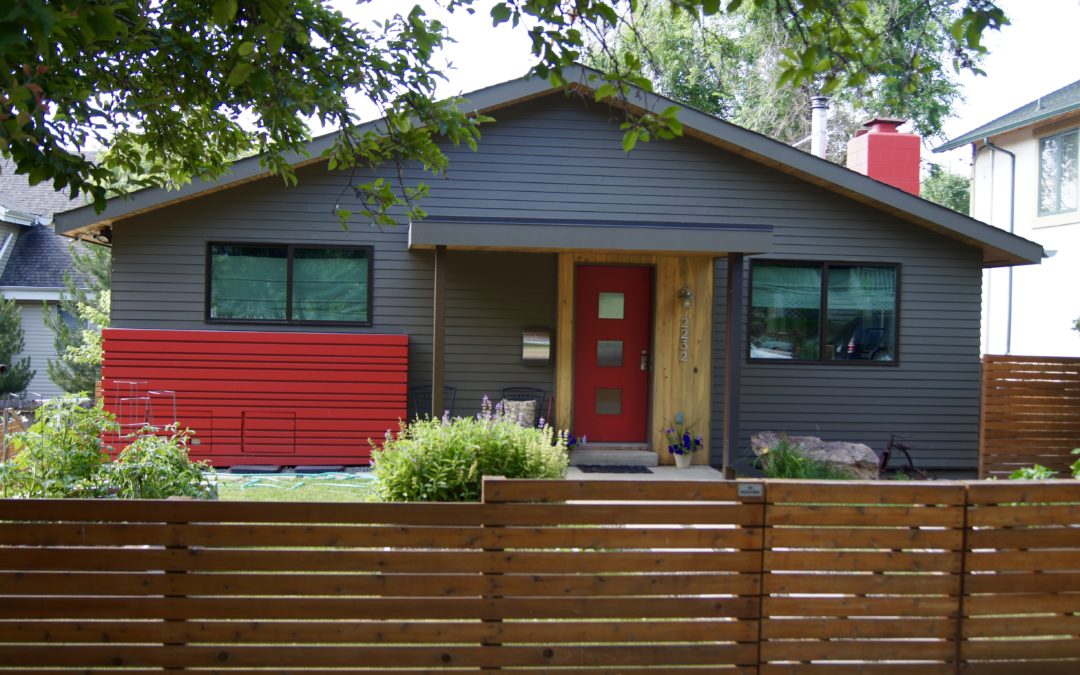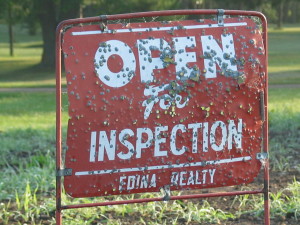
by Neil Kearney | Nov 30, 2016 | For Buyers, General Real Estate Advice, Real Estate 101
 If you have determined that you are ready to buy a house (click here for more information about determining if you are ready) the next question to ask is how do I do it? What is the smartest way to go about buying a home? What are the first steps in a home search? This article will show how to begin the process of buying a home as well as point out some common pitfalls that can be avoided.
If you have determined that you are ready to buy a house (click here for more information about determining if you are ready) the next question to ask is how do I do it? What is the smartest way to go about buying a home? What are the first steps in a home search? This article will show how to begin the process of buying a home as well as point out some common pitfalls that can be avoided.
Step 1 – Finding a Really Good Realtor
It’s easy enough to start browsing houses on the internet or going to the random open house, but at some point you will want to get more serious about looking at homes. The first step towards getting more serious about looking for a home is finding a good Realtor who has been through the process time and time again. Most people end up working with a Realtor, so why not engage one early on in the process? Realtor’s have tools that will save you time and put you on track to finding the right home more quickly. A good Realtor is much more than a person who shows you the houses that you have found online, they serve as an information source, an advocate and a guide through the process. Make sure you are working with a Realtor who is more interested in helping you find a great house for the long term rather than a quick sale for them. It takes patience and persistence to make sure you end up in the right home.
Note: A Realtor is a member of the National Association of Realtors and is bound to abide by a code of ethics. Not all real estate agents are Realtors. Make sure your’s is one.
Step 2 – Get Pre-Approved
One of the most important steps in a home search is to find a good lender and get pre-approved. Your Realtor should be able to recommend a few local lenders who have proven themselves to be responsive and know how to get the job done. Using a local lender is important, not only are they accountable but they are there to solve problems at the closing table if anything comes up at the last minute. Your earnest money is at stake! If your lender is delayed at the last minute or their money doesn’t make it to the closing table on time and the seller chooses not to give you an extension, you lose your earnest money. You cannot go back to your lender and recover those lost funds. Choosing a lender is more than finding the lowest interest rate, it is finding an advisor who will help you make a sound financial decision given your unique circumstances. The credit rules change often and it is important to use an experienced lender to help you get the job done in a timely manner.
Step 3 – Looking at Homes Online – The First Showing
 The internet is a great tool when searching for homes. When you view internet sites such as Zillow.com, Realtor.com, Redfin.com and Coloproperty.com you are able to easily find and view homes for sale by putting in any search criteria. The results are quick and beautiful. It’s easy to get caught up in the great houses that are available.
The internet is a great tool when searching for homes. When you view internet sites such as Zillow.com, Realtor.com, Redfin.com and Coloproperty.com you are able to easily find and view homes for sale by putting in any search criteria. The results are quick and beautiful. It’s easy to get caught up in the great houses that are available.
But here are the pitfalls of the national home search sites:
- Many of the popular home search sites don’t have all of the properties listed for sale. Listing brokers determine who gets to display those listings and some don’t send to all of the available sites. Many company sites just get feeds from one MLS system so if a listing is listed in another (which is often the case in the Boulder area) those other listings are not displayed.
- The goal of the big national sites is to get as many views and clicks as possible. So properties show up as “active” until they are sold. Don’t fall in love with an active house on Zillow until you check with your agent to make sure that it isn’t already under contract.
- The agent who is listed in conjunction with a given property many not be the listing agent. So if you click on a “more information” button you will most likely be contacted by an agent who has paid for that opportunity and knows nothing about the house.
Now a word about search criteria. When clients tell me their “wish list” I write down every bit of it, but I then explain that it might be better to keep our search wide so that we don’t miss a house that meets 95% of what they want. In a market characterized by low inventory this is especially important.
Note – www.Coloproperty.com is the public site for the local MLS system IRES. This site changes the status of a property (active, under contract, sold) on their display right when it happens. So to get the true scoop go to this site. Disclaimer – I have served on their Board of Managers for 9 years now.
Step 4 – Viewing Homes In Person
 How soon is too soon to start actually looking at houses looking? For example, if your lease is up in July and you don’t want to have rent and mortgage payments for more than 1 month, January is usually too soon. However, when to start depends upon how particular you are, how many homes are likely to come on the market during a particular time etc. This is a good conversation to have with your Realtor.
How soon is too soon to start actually looking at houses looking? For example, if your lease is up in July and you don’t want to have rent and mortgage payments for more than 1 month, January is usually too soon. However, when to start depends upon how particular you are, how many homes are likely to come on the market during a particular time etc. This is a good conversation to have with your Realtor.
Once you and your agent have identified some properties to view the next step in your home search is that your agent will set the showings with each listing agent (through them, their company or a showing service). Sometimes homes can be viewed immediately but often times the owners require a few hours to 24 hours notice. Sometimes the listing agent needs to be at the showing and that complicates the timing.
Once you are inside a home you will have already begun to judge the house on these criteria; “could I live here?”, “how does it compare with other homes?”, “is this the one?”. If you quickly realize that this isn’t “the one” it’s still good to see the rest of the house but in my experience it’s not necessary to see every little thing. Who cares what the second basement closet looks like! You only have so much memory available and if you fill it up with the tiniest details of a house that you have already determined you won’t buy you end up confusing houses. Was it the yellow house that had the gold faucets or was it the one next to the park?
Once you find the one that you think you want to pursue you will want to go back for a closer look. This is the time to “kick the tires” and make sure you know what you’re in for. Hopefully the second time through will only make the heart grow fonder.
In the next installment in this series I will go through the process of what happens once you find a house that you love.

by Neil Kearney | Nov 28, 2016 | General Real Estate Advice, Real Estate 101
 Am I ready to buy a house? It starts as a subtle suggestion in the back of your mind. You might hear yourself thinking; “this is ridiculous, rents are so high and I’m throwing my money away” or “now that I’ve landed that job I’m ready to settle down” or “we’ve been saving for years and now is the time to buy before prices go up any more”, or “all of my friends are buying places and they seem to be doing great”. Whatever dialog is whispering in your ear, there comes a time when it may make sense for you to buy a home of your own. But are you truly ready? This article will help first time home buyers to analyze that question and help get you ready to make the purchase.
Am I ready to buy a house? It starts as a subtle suggestion in the back of your mind. You might hear yourself thinking; “this is ridiculous, rents are so high and I’m throwing my money away” or “now that I’ve landed that job I’m ready to settle down” or “we’ve been saving for years and now is the time to buy before prices go up any more”, or “all of my friends are buying places and they seem to be doing great”. Whatever dialog is whispering in your ear, there comes a time when it may make sense for you to buy a home of your own. But are you truly ready? This article will help first time home buyers to analyze that question and help get you ready to make the purchase.
Is it smart to buy a house? (when I say house I mean any residential real estate) If done correctly, owning a home is for many people best financial decision they ever make. According to the 2014 Survey of Consumer Financing by the Federal Reserve the median net worth of a homeowner was $194,500 compared to $5,400 for renters. During the time frame of 2008 – 2012 many homeowners were adversely affected by the housing crisis and economic downturn that resulted in a record number of foreclosures and short sales nationally. For those who bought just before the crisis or those who needed to sell when prices dropped in many areas (click here to see why Boulder County was named the most stable market in the country) owning a home may not seem like a wealth enhancing endeavor. But over time and for most people real estate is a great investment. Here’s why:
When you buy a home you tap into these three powerful methods of increasing wealth.
- Home appreciation – the prices of homes rise with inflation and local supply/demand factors. Prices rise over time.
- Principle reduction – as opposed to a rent payment, a portion of each payment goes towards paying down the principle balance. With each payment your wealth is increasing a little bit.
- Tax benefits of ownership – the mortgage interest deduction allows those who itemize their deductions on their income taxes to write off the interest paid on their mortgage payment. In effect you get a discount off of your payments made at the end of the year.
You may ask, “if it’s such a great deal why is the homeownership rate in America at just 63% and falling?” The truth is that homeownership isn’t for everyone. Here are some the reasons why it may not be a good idea to buy a house.
- Location instability – Homeownership is a longterm proposition. Buying a house now and then moving six months from now is a sure fire way to lose money. There are costs associated with both buying and selling and it takes time to recoup those costs. I usually recommend that you plan to be in the house a minimum of two years. Any less than that and you are speculating, hoping instead of playing it smart.
- Financial instability – In order to stay in a house you must have the financial wherewithal to withstand some unexpected expenses. If you are one paycheck away from being broke it’s best to save up a nest egg before buying. If you already have a list of debts it might be a good idea to pay those off before taking on another large debt. The more ready you are financially the better chance you have for making homeownership work for you.
- Ready for the responsibility? – When you own a house you must be willing to take care of the maintenance and any problems that come up. There are many items that need attention on an ongoing basis that take time and money and there will no longer be a landlord to call. Once you make the purchase you are in charge of anything that comes up.
Getting Your Financial House In Order
When you determine that in principle you are ready to take take the plunge into homeownership, you must then determine if your financial house is in order enough to make the purchase. Here is what I mean by having your financial house in order: down payment money in the bank (anything less than a 20% downpayment requires mortgage insurance which results in a larger monthly payment with no added benefit to you), in addition to the down payment you need to have a savings account that has 3 to 6 months of your household expenses as a cushion for the unexpected, minimize other debt – for most people they think it’s normal to carry car payment(s), student loan(s), and credit card debt, even if you qualify for all of these payments it may be a smart idea for you to delay a home purchase until these other debts are paid off. The more debt you have the more susceptible you are to losing your house in the case of a layoff or other unexpected financial hardship.
Another facet of having your financial house in order is your credit score. Credit scores have a huge impact on your ability to buy a house. If you have a credit score of less than 760 your qualification or the interest rate you are offered will be negatively affected. To check your credit score for free (with no strings attached) go to www.AnnualCreditReport.com. If you find out that your credit score will negatively impact you, figure out why your have a low score and start fixing your FICO score. This may take time so pay your bills on time and plan ahead.
How much should I spend on a house? There are a few rules of thumb regarding how much you should spend. Some say the total price shouldn’t exceed 2.5 times your household annual gross income. Another commonly heard standard is that your mortgage payment plus other debt payments shouldn’t exceed 40% of your income. However, in my experience I find that many people qualify for more than they should do. The term for allocating too much of your income to your house payment is “house poor”. Being “house poor” means that you are a slave to your monthly payment and don’t have the money to do the other things you enjoy.
My advice is to buy a house that allows you to be very comfortable in your payment. This will allow you to enjoy life and meet your other financial goals. Have a firm grasp of your budget and be sure to add into it the expenses that will come with buying a home, like new window coverings, increased utility expenses, needed upgrades, etc. Many times the actual answer to “how much should I spend on a house” is different than what your lender will qualify you for. Know your budget and think for yourself. Don’t keep up with the Jones’.
It all comes down to what you can comfortably afford and interest rates have a huge impact on what you can afford. My article The Impact of Interest Rates on Home Affordability delves deeply into the subject, but basically as interest rates rise the amount of the mortgage you can qualify for decreases. For example, if you qualify for a $355,000 mortgage and then interest rates rise by .5% you will need to drop your budget by at least $20,000 to keep the same payment. My advice is to pay attention and know that it makes a difference.
This article helps you think about if you are ready to buy a house. In the next article I will start to outline the how to go about buying a home in a smart way, the process.

by Neil Kearney | May 25, 2016 | For Buyers, For Sellers, Real Estate 101
 Do you know what PITI is? If you have a loan on your home you probably know that these are the four elements of a mortgage payment. P stands for principal; the first I stands for Interest; T stands for taxes and I stands for insurance. Together they make up the amount you pay for your home on a monthly basis. If your PITI payment is comfortable for you, you will have extra funds available to pay for all of your living expenses, be able to save some money on a monthly basis and have some left over for some fun. But many times as we consider how much of a house we can afford we key in on the price of a home and the interest rate (these go into determining the ‘P” and first ‘I’) without much considering the ‘T’ and the ‘I’.
Do you know what PITI is? If you have a loan on your home you probably know that these are the four elements of a mortgage payment. P stands for principal; the first I stands for Interest; T stands for taxes and I stands for insurance. Together they make up the amount you pay for your home on a monthly basis. If your PITI payment is comfortable for you, you will have extra funds available to pay for all of your living expenses, be able to save some money on a monthly basis and have some left over for some fun. But many times as we consider how much of a house we can afford we key in on the price of a home and the interest rate (these go into determining the ‘P” and first ‘I’) without much considering the ‘T’ and the ‘I’.
Before I get started talking about property taxes I want to make it clear that this is not a comprehensive article on taxation. There are many elements that go into the discussion of total taxation that include income tax, various sales taxes, car registration fees, use fees, transfer taxes, etc., this article just focuses on one element and is therefore not a comprehensive picture. It doesn’t fairly compare apples to apples across states. However, I think it’s an interesting and relevant topic because it comes up often in my discussions when I am showing property.
Corelogic recently did a study ranking the median property tax rate across the country. The highest property tax percentage is in Illinois where taxes are 2.67% of the assessed valuation and lowest in Hawaii where the property tax burden is just .31%. Colorado is ranked 5th from the bottom with .66%, meaning that we have the 5th lowest property tax burden in the United States. Despite the arguments* that there are too many elements not included in this study I think in general it’s true that the cost of ownership in places like Illinois, New York, New Jersey are much higher than they are in Colorado. In Colorado the “T” portion of our payments is much lower than other states and therefore, all things being equal, we can afford more expensive homes with the same payment.
Local Property Tax Comparison
Now let’s get more granular. Within my market area buyers need to look closely at property tax rates within the different localities. Here is a quick comparison of homes currently on the market. I have tried to choose homes that are similar in price and similar in assessed value.
- Boulder – 4616 Talbot Dr. | List Price $574,000 | Assessed Value $423,900 | 2015 Taxes $2,766 | Tax/Assessed .648%
- Louisville – 453 Centennial | List Price $599,900 | Assessed Value $450,200 | 2015 Taxes $2,988 | Tax/Assessed .664%
- Lafayette – 369 Caribou Pass | List price $580,000 | Assessed Value $464,300 | 2015 Taxes $3,180 | Tax/Assessed .685%
- Longmont – 5712 Clover Basin | List Price $575,000 | Assessed Value $409,700 | 2015 Taxes $2,971 | Tax/Assessed .725%
- Superior – 3103 Castle Peak | List Price $599,900 | Assessed Value $464,100 | 2015 Taxes $3,881 | Tax/Assessed .836%
- Erie – 1276 Greening | List Price $560,000 | Assessed Value $399,950 | 2015 Taxes $3,483 | Tax/Assessed .871%
- Broomfield – 4630 Nelson | List Price $569,000 | Assessed Value $466,710 | 2015 Taxes $4,490 | Tax/Assessed .962%
The order listed is ranks the local communities for property tax burden as a percentage of the assessed value of the property. Boulder has the lowest tax rates and Superior, Erie and Broomfield have the highest. If a buyer were to be comparing homes in Boulder and Broomfield, the taxes make a difference. The differential in the monthly payment is around $100 per month, definitely worth looking at.
*Some of the arguments that invalidate this report are: a) Different states base taxes on different amounts. Assessed value vs. actual value. b) Some states give a homestead exemption. c) Some states assessed value doesn’t change until a sale and then it goes to the purchase price. d) The report doesn’t take into account special assessments or the prevalence thereof within states.

by Neil Kearney | Feb 22, 2016 | For Buyers, General Real Estate Advice, Real Estate 101
During 2015 43% of all homes sold in the City of Boulder sold for more than asking price (see more context in my year end report) . Presumably most of these homes had multiple buyers making competing offers. So what does it take to be the winner of a multiple bid situation? Here are seven strategies for winning multiple offers. I liken these ideas to a set of arrows in a quiver.
- Price – The most effective way to win the hearts and minds of a seller is to give them the most money. In theory it’s easy give them more than anyone else. In practice, given limited information, it’s very difficult to know what others who are exactly in your position will do. On average in 2015, those homes that sold for a price over asking price sold for 4% above. The range is from just a few hundred dollars over to 20% over. Now that’s using a sharp and effective arrow!
- Escalation Clause – This could be a subheading under price but I think it’s worth giving it top billing. An escalation clause is a paragraph inserted in the contract which states; that the buyers agrees that if their offer isn’t high enough their offer will be automatically increased to beat any competing offers by $X,000 up to a cap price. Some sellers and their agents announce that they will not accept escalation clauses because they view them as a hedge (we are willing to go higher but only if we need to). For a buyer an escalation clause is a good way to state your intentions to the Seller without paying way more than you need to. If a buyer is going to use an escalation clause, I recommend that the contract price be strong as well. If you offer $10,000 lower than asking price but are willing to go up t0 $30,000 above if pushed the seller may not see this as earnest as an offer who offers $25,000 over the asking price right off the bat.
- Financing – Sellers want the most money with the smallest potential of the contract cancelling. It doesn’t do any good to get a great price and then not be able to close. As a buyer you can tie into this fear by making your financing as clean as possible. Cash is king. And it removes many contingencies as well. But if you don’t have cash you can do well by having your financing in order. Get pre-approved not just pre-qualified. Have your lender picked out. Choose a local lender. Make sure your lender is available to answer questions about you.
- Waive the Appraisal – Your lender will require an appraisal but if you are putting enough money down you can still waive the right to object to the appraisal. In a fast appreciating market the appraisal contingency is something sellers worry about and if the appraisal doesn’t match the price as explained in #1 above the transaction has a real chance of not closing. But as a buyer if you are putting enough money down (think at least 25%) you can talk to your lender and see if waiving the appraisal provision is a possibility.
- Inspection – Some buyers come in really strong during the negotiations and then try to re-negotiate during the inspection period. As an earnest buyer you can promise the seller that you will not negotiate after the inspection. To do this we add a clause to the contract that states that the buyer will take the property in as-is condition but that they still retain the right to terminate the contract if they find something big or unexpected during the inspection.
- Personal Letter – Earlier this year I had a listing that received three offers. The two best offers were nearly identical; same price, same escalation clause, closing date within a week of each other, local lenders with the same down payment. There was nothing in either of the contracts that was swaying the seller. The only difference was that one buyer sent with their offer a personal letter that introduced themselves and let the seller know how much they loved their home. Winner, winner chicken dinner!!
- Clean Contract – Your agent needs to do their part by writing a “clean” offer. This means that the contract is filled out correctly, all required paperwork is attached, all dates in the offer are reasonable and make sense, all negotiable payments like HOA transfer fee and title closing fee are at least split if not. Small things that cost a few hundred dollars can make all the difference when you are competing. Also, if you like working with your agent chances are that the listing agent likes working with them as well. This cooperation is essential and it’s a feather in your cap to work with an agent who has experience and is known as easy to work with. Working with an agent with a tag line of “The Enforcer” (this is made up) may be an indication that they may like to fight and win and not cooperate. When given a choice agents like to work with other cooperative agents.
Good luck out there. These multiple offer strategies have worked well for my buyers over the past couple of years. If you are looking for quality representation please let me know.

by Neil Kearney | Feb 24, 2015 | Boulder County Housing Trends, For Buyers, For Sellers, General Real Estate Advice, Real Estate 101
 In a recent article in Forbes Magazine by Mary Meehan titled “The Baby Boomer Housing Bust“, the author makes the case that in the coming years the Baby Boomers may have a hard time selling their homes to the Millenials. She states that many Baby Boomers (people born between 1946 and 1964) will need to sell their large suburban homes to finance their retirement and that the younger buyers may not be interested in buying those homes.
In a recent article in Forbes Magazine by Mary Meehan titled “The Baby Boomer Housing Bust“, the author makes the case that in the coming years the Baby Boomers may have a hard time selling their homes to the Millenials. She states that many Baby Boomers (people born between 1946 and 1964) will need to sell their large suburban homes to finance their retirement and that the younger buyers may not be interested in buying those homes.
It’s an interesting article, especially since in the Boulder area we are seeing a strong sellers market with strong demand for any property listed. But since real estate markets change and many people are talking about how the changing demographics in America will affect housing, I thought I would explore the connection between Baby Boomers, Millenials and real estate. Here are the topics I’d like to touch on:
- Baby Boomers need to sell homes to fund retirement.
- Younger buyers, including Millennials have different attitudes regarding home ownership.
- There will be an unmatched demand for the supply of homes on the market.
According to a National Association of Realtors (NAR) 2014 Generational Trends Survey, Millennials made the most real estate purchases in 2013. Here is the breakdown:
Millennials (1980 – 1995) 31% of purchases
Gen X (1965 – 1979) 30% of purchases
Young Boomers (1955 – 1964) 16% of purchases
Older Boomers (1946 – 1954) 14% of purchases
Silent Generation (1925 – 1945) 9% of purchases
For reference, here are the latest population percentages in the United States and Boulder County: Under 18 25.7% (22.9%); 18-24 9.6% (13.4%); 25-44 30.2% (33.6%); 45-64 22% (22.3%); 65+ 12.4% (7.8%).
My takeaways from this are: The Baby Boom generation is roughly 25% of the population. I always had the perception that the 65+ cohort was a bigger percentage. I know that it’s growing, but it’s in the future, not in the present. And did you notice the low percentage of retirees in Boulder County? Just 7.8% of our local population.
Some facts about the Baby Boomers:
- The youngest of the 78 million Boomers are turning 50 this year.
- 10,000 Boomers a day are turning 65 years old, this will happen every day through 2030.
- Younger Boomers have less savings and a lower homeowner rate than older Baby Boomers.
- Boomers own 32 million single family homes.
- They have had a great run in the real estate market. Owning a home has been a great investment.
- So far, this generation has been net even in the housing market. When they sell one, they buy one. This will change but will the Millenials be ready to buy?
Some Facts about Millennials:
- They are the second largest generation.
- Despite the housing crash in 2008, 2/3 believe that owning a home is essential to living a good life.
- This generation is delaying home buying due to high student debt and a tough job market.
- Despite having a delayed start in the housing market Millenials bought the most homes in 2013 (see above).
- The U.S. housing market saw it’s first sustained downturn during many of the Millenials first buying/owning experience. This has led to a more subdued mindset about housing.
Are The Baby Boomers Ready For Retirement?
In the 2013 Retirement Confidence Survey conducted by the Employee Benefit Research Institute (EBRI), workers aged 55 and older said the following about their retirement savings:
- 60% have less than $100,000 in retirement savings
- 43% have saved less than $25,000
- 36% have saved less than $10,000
As a point of reference, of all workers surveyed:
- 76% have less than $100,000 saved
- 57% have less than $25,000 saved
- 46% have less than $10,000 saved
Despite the apparent lack of adequate savings, 70% of all workers surveyed also said they believe they are “doing a good job of preparing for retirement”—even though only 46% of all workers surveyed have a retirement plan!
According to the information above it’s clear that many Baby Boomers are not ready for retirement. Selling their family home and moving to a lower priced home and supplementing their retirement with the difference seems to be a key component to many “plans”.
Are Millenials Interested In Boomers Homes?
During the last fifteen years Baby Boomers have been purchasing upgraded homes and second homes. Generation X who are on the heels of the Boomers, are a smaller generation and after the economic downturn are in recovery mode. Gen X won’t be able to buy all of the homes that Boomers are getting ready to sell. Millenial generation home buyers have been less interested in size and more interested in location. So far, being near the action is more important that having a status symbol. This generation is large but is just getting geared up in the home buying cycle. So far, demand has met the supply of homes but as more and more Boomers sell their large homes the younger generations may not be interested in them. Especially if it’s large and suburban.
Will Supply and Demand Meet?
The latest US Census data suggests that the population in the United States will grow 27% between 2015 and 2060. As a friend of mine says “clearly there will be a set of cheeks for every seat”. In fact for the foreseeable future, home builders will need to stay busy to keep up with demand. So the question in my mind is not a question of scope but of type. There will clearly be enough home buyers to meet the seller demand but will the price range, type and location meet the buyers desires. Those Boomers with McMansions away from urban areas may find decreasing demand for that type of housing in the future.
The Local Spin
According to a recent National Association of Realtors report both Millenials and Baby Boomers see the Denver area as one of the top areas in the country to relocate to. I have found that I’m working with many more experienced home owners who are looking to the Boulder area as a place to retire. College towns are especially popular throughout the country although Boulder is rare in that the home prices prohibit less affluent people from retiring here. Millenials follow lifestyle and jobs and the Front Range of Colorado including Boulder County has plenty of both. So in my mind, as long as the lifestyle and economy stay favorable, we will still have people wanting to live in the Boulder area.
My Conclusions
As more and more Baby Boomers retire, the real estate market will take on a different character. Many Boomers will downsize and while there will be a demand for their homes, price appreciation may stagnate over time. Millenials may not have the exact same taste in homes than do the Boomers, but as the U.S. population grows towards 400 million people in the next 40 years, the demand for housing will expand. And as Will Rogers said “Buy land. They ain’t making any more of the stuff.”
Additional Articles
NAR Field Guide to Millenial Home Buyers
Why Millennials Don’t Trust Ads, Real Estate or Social Security

by Neil Kearney | Dec 18, 2014 | For Buyers, General Real Estate Advice, Real Estate 101
 Here are some of the reasons why people buy their first home.
Here are some of the reasons why people buy their first home.
- Tired of paying rent / rents are rising.
- Home prices are rising and if they don’t buy now they might be priced out of the market.
- Just got married.
- Just got a great new job.
- All my friends are buying a place and it seems like a good idea.
All of these reasons are reasonable, but none of them hit on the key factors that a first time home buyer should consider when they are thinking about buying a home. They can push you in the right direction but they don’t ensure an intelligent purchase.
Buying a home is one of the best ideas you can make. It is a great long term investment, your payments are tax advantaged, with each payment you are gaining equity and you get to live in a place you can make your own. It’s a win, win, win! However, the keys to making it a good investment have much to do with your stability and your budget.
I mentioned in the previous paragraph that owning real estate was a great long term investment. Unless the market is appreciating very quickly you will be doing very well to break even if you need to sell within two years. Real estate is cyclical so not everyone gets lucky and makes the purchase right before prices take off. In many markets prices are just now getting back up to 2007 levels after a big decline. If you bought in 2006 and needed to sell in 2010 you lost money. So the first question to ask yourself when you are considering a home is: “How long will I be living in this house?” If you answer is less than five years it might be better to rent. A key to making real estate an investment, not just a place to live is the ability to wait out market cycles.
Besides geographic stability the other main thing to consider is affordability. The first step to figure out what is affordable is to take an in depth look at your finances. Examine your long term financial goals such as savings, retirement, kids college, vacations, etc., and figure out how to make it all fit within your budget. When you know your comfort level regarding monthly payment call a mortgage lender to get pre-approved. Most likely you will be approved for more than what you are comfortable paying. If you over-extend yourself with your new house you will feel burdened instead of smart. Pick a payment that is comfortable for you and that allows you to keep your savings and lifestyle goals in tact.
Some practical considerations regarding affordability:
- Plan ahead for future changes in income. Do you plan to become a one income family after you start a family? Don’t lock yourself into a payment that requires two incomes.
- Have you saved enough of a down payment? Low down payment options are available but they require an additional payment called mortgage insurance. If you have less than 20% down it might be a good long term decision to delay the purchase and save every penny you can until you have what you need.
- As interest rates rise your payment dollar buys you less house. If you are almost ready to buy and your qualification is right on the edge it might be good to lock in a home before interest rates rise. To read more about how much this can affect your payment see my article The Impact of Interest Rates on Home Affordability.
- Credit scores have a huge impact on your ability to buy a house. If you have a credit score of less than 760 your qualification or the interest rate you are offered will be negatively affected. To check your credit score for free (with no strings attached) go to www.AnnualCreditReport.com. If you find out that your credit score will negatively impact you, figure out why your have a low score and start fixing your FICO score.
Page 2 of 9«12345...»Last »

 If you have determined that you are ready to buy a house (click here for more information about determining if you are ready) the next question to ask is how do I do it? What is the smartest way to go about buying a home? What are the first steps in a home search? This article will show how to begin the process of buying a home as well as point out some common pitfalls that can be avoided.
If you have determined that you are ready to buy a house (click here for more information about determining if you are ready) the next question to ask is how do I do it? What is the smartest way to go about buying a home? What are the first steps in a home search? This article will show how to begin the process of buying a home as well as point out some common pitfalls that can be avoided. The internet is a great tool when searching for homes. When you view internet sites such as Zillow.com, Realtor.com, Redfin.com and Coloproperty.com you are able to easily find and view homes for sale by putting in any search criteria. The results are quick and beautiful. It’s easy to get caught up in the great houses that are available.
The internet is a great tool when searching for homes. When you view internet sites such as Zillow.com, Realtor.com, Redfin.com and Coloproperty.com you are able to easily find and view homes for sale by putting in any search criteria. The results are quick and beautiful. It’s easy to get caught up in the great houses that are available. How soon is too soon to start actually looking at houses looking? For example, if your lease is up in July and you don’t want to have rent and mortgage payments for more than 1 month, January is usually too soon. However, when to start depends upon how particular you are, how many homes are likely to come on the market during a particular time etc. This is a good conversation to have with your Realtor.
How soon is too soon to start actually looking at houses looking? For example, if your lease is up in July and you don’t want to have rent and mortgage payments for more than 1 month, January is usually too soon. However, when to start depends upon how particular you are, how many homes are likely to come on the market during a particular time etc. This is a good conversation to have with your Realtor.









